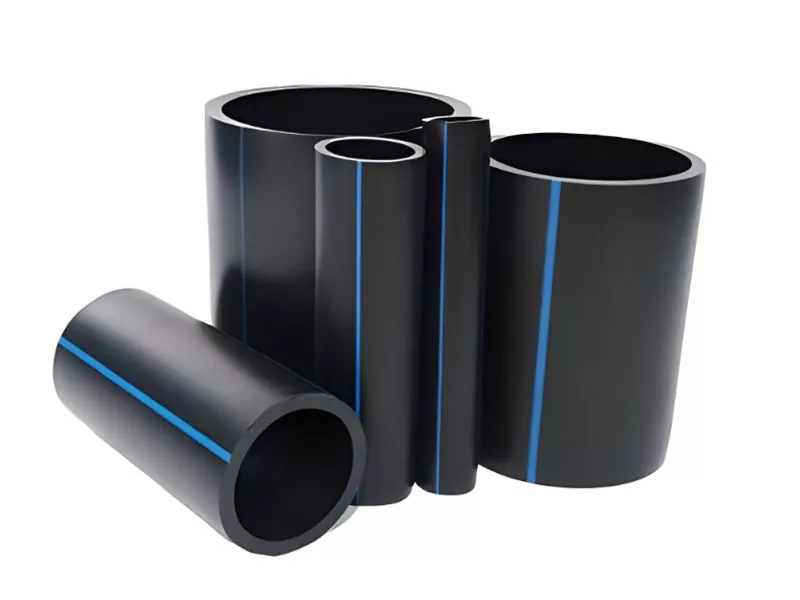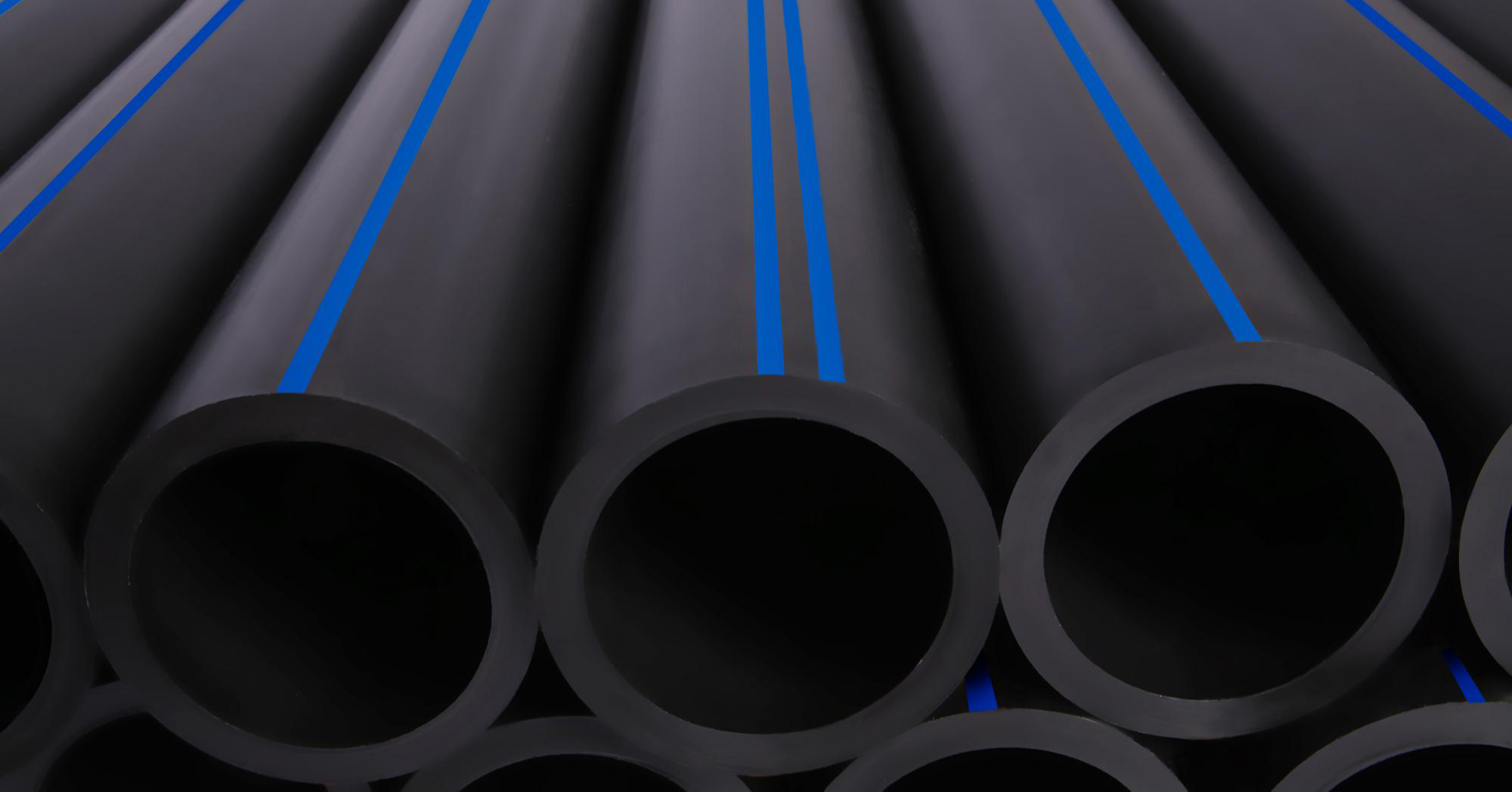Understanding the Secret Conveniences of HDPE Pipeline for Water and Wastewater Administration
Making use of HDPE pipe in water and wastewater monitoring provides countless benefits that merit factor to consider. Its exceptional resilience and lengthy life expectancy make it a recommended option for several jobs. In addition, the material's resistance to corrosion and chemical damages boosts its integrity in different settings. The benefits extend past simply long life and resistance. Midland TX HDPE Pipe Fittings in Stock. Exploring its cost-effectiveness and ecological influence exposes even a lot more engaging factors for its extensive fostering in modern-day facilities
Phenomenal Sturdiness and Durability

HDPE pipe attracts attention for its remarkable longevity and longevity, making it a favored option in water administration systems. Constructed from high-density polyethylene, these pipelines can stand up to substantial stress and stress, guaranteeing trusted efficiency over time. Their robust nature enables them to withstand severe ecological problems, consisting of temperature variations and soil movements, which can create other products to stop working.
The life-span of HDPE pipes frequently goes beyond 50 years, offering an affordable solution for municipalities and industries alike. Furthermore, the product's light-weight residential properties simplify installation, decreasing labor expenses and timeframes. This toughness decreases the demand for constant fixings or substitutes, further enhancing its financial charm.
In water monitoring applications, the reliability of HDPE pipes indicates fewer disturbances and boosted solution continuity, making them essential to sustainable facilities advancement. The combination of durability and long life strengthens HDPE's role as a cornerstone in effective water management remedies.

Resistance to Corrosion and Chemical Damages
While numerous materials succumb to corrosion and chemical damages gradually, HDPE pipelines display amazing resistance, making them excellent for various water monitoring applications. This durability comes from the molecular structure of high-density polyethylene, which is naturally non-reactive and does not rust like steels or break down from exposure to severe chemicals. Because of this, HDPE is highly efficient in atmospheres with hostile substances, such as wastewater systems that might consist of acids, bases, and organic solvents.
Additionally, HDPE pipelines can stand up to environmental variables such as dirt acidity and saline problems, additionally enhancing their suitability for diverse applications (custom hdpe pipe manufacturing Midland TX). Their capability to preserve structural stability over time lowers the risk of leakages and failures, which is critical in making sure the safety and security and integrity of water distribution and wastewater administration systems. The resistance to rust and chemical damages considerably contributes to the overall efficiency and durability of HDPE piping remedies.
Cost-Effectiveness and Financial Advantages
When taking into consideration the monetary ramifications of water monitoring systems, the cost-effectiveness of HDPE pipelines ends up being apparent. These pipes use lower installment and maintenance prices contrasted to typical materials like steel or concrete. Their lightweight nature simplifies transportation and installment, resulting in decreased labor expenses. Furthermore, HDPE pipes display a long life-span, often going beyond 50 years, which translates to less substitutes and long-term cost savings.
The resistance of HDPE to corrosion and chemical damage minimizes the demand for expensive fixings and substitutes. The pipelines likewise support reliable water flow, decreasing power prices related to pumping systems. By reducing leaks and water loss, HDPE pipes add to significant financial benefits for districts and sectors alike. Generally, the preliminary investment in HDPE piping can generate significant economic returns over the life-span of the water monitoring system, making it a sensible option for lasting framework advancement.
Environmental Sustainability and Reduced Impact

Versatility and Adaptability in Installation
As a result of their one-of-a-kind properties, HDPE pipelines offer amazing adaptability and versatility in installation, making them ideal for a variety of applications. Their light-weight nature permits easier handling and transportation, decreasing labor expenses and installation time. HDPE pipelines can be curved and formed to fit various here surfaces and job demands, which is especially beneficial in testing atmospheres.
Additionally, their resistance to rust and chemical damages permits installation in varied settings without the demand for specialized safety coatings. The ability to fuse joints develops a continuous, leak-free system, boosting the total honesty and reliability of the installation. HDPE's flexibility additionally suits ground motion, reducing the risk of damages in locations susceptible to moving soil. Generally, these features make HDPE pipelines not only functional yet additionally a preferred option for water and wastewater administration systems.
Frequently Asked Concerns
How Does HDPE Pipeline Compare to PVC in Water Monitoring Applications?
HDPE pipe offers remarkable flexibility, resistance to corrosion, and toughness contrasted to PVC. Its lighter weight promotes easier setup, while its lengthy life expectancy minimizes replacement costs, making HDPE a preferred option in water monitoring applications.
What Is the Life-span of HDPE Pipeline Under Typical Problems?
Under typical conditions, HDPE pipelines can have a lifespan ranging from 50 to 100 years. Their longevity and resistance to deterioration contribute to their long-term efficiency in numerous applications, making them a reliable option for infrastructure.
Are HDPE Water Lines Recyclable After Their Life Span?
Yes, HDPE pipes are recyclable after their life span. American Plastics HDPE Pipe for Oilfield. They can be processed and repurposed right into new products, considerably lowering ecological influence and advertising sustainability within the industry, making them an environment-friendly choice for piping options
What Is the Installment Refine for HDPE Water Lines?
The installment procedure for HDPE pipelines includes site prep work, trenching, pipeline blend or mechanical joining, backfilling, and stress testing. Proper methods guarantee a long lasting and efficient system for transporting water and wastewater efficiently.
Can HDPE Pipeline Be Utilized for Both Drinkable and Non-Potable Water Solutions?
Yes, HDPE pipelines can be used for both drinkable and non-potable water systems. Their convenience, resilience, and resistance to corrosion make them suitable for various applications, making sure risk-free and effective transportation of water in different contexts.